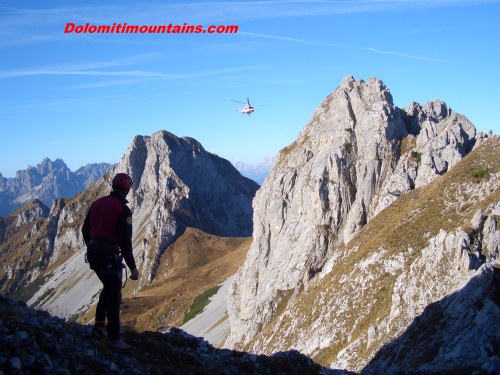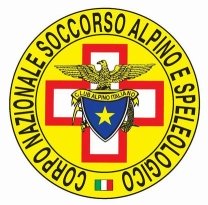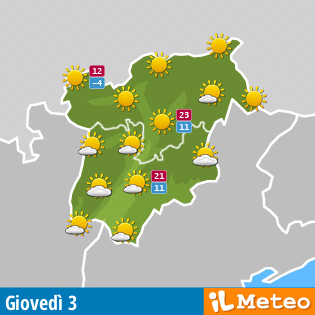Mountain Rescue
An important resource for all
 |
| Italian |

Mountain Rescue is the Body that provides search and rescue in the mountains and more generally in hostile environments such as ravines, gorges, cave, clefts and crevasses. Part of the volunteers are specialized in speleology. This organization is named Corpo Nazionale Soccorso Alpino e Speleologico – C.N.S.A.S. (National Alpine Speleological Rescue Body) and it was founded in 1954. It is a highly specialized and professional volunteering organization entrusted by Law with the task of doing mountain rescue (Italian Law n. 776, Dec. 24,1985). It coordinates the operations when other agencies like Guardia Forestale (Rangers) or Guardia di Finanza (Revenue Guard Body) are involved.
The Body cooperates with the National Health Emergency Service (known as “118”, derived from the phone number used to invoke it) in several Regions. The Body provides trained rescue technicians who stand in the emergency stations; they have at their disposal the helicopter and they collaborate with health professionals during mountain rescue operations. The Mountain Rescue personnel is trained in using rescue techniques also with the use of helicopters, and in operating with ropes, winchs, barycentrics, and whatever is needed for their functions and for supporting health professionals during service.
 |
 |
The Body is active on a twenty-four seven basis (24 hours, 7 day a week) and it is put on the alert by 118 (see above, the National Health Emergency Service) when emergencies occour. For instance, in the Province of Belluno, C.N.S.A.S. operates in this territory as II Delegazione Dolomiti Bellunesi with about 600 men organized in 18 teams (plus 2 for Treviso). 15 of them are rescue helicopters technicians. Each Team operates within a specific territory, composed by one ore more municipalities.
It needs motivation to be part of Mountain Rescue
The typical interventions in mountain climbing are rescuing hikers, mountaineers, alpine skiers (mainly people involved in avalanches), mushrooms gatherers, icefall climbers, and rescue in mountain pastures. If the degree of medical graveness is high or the location is very impervious, one helicopter and the local C.N.S.A.S intervene. When the intervention is less serious and when the helicopter can not fly (by night or with rain/snow) the team intervene “on foot”, or with off-road vehicle and then on foot up to sites that vehicles can not reach. Rescuers walk or climb up to reach the injured, they administer first aid, they stabilize him, and finally they take him to the nearest hospital. The operations are often difficult and dangerous, as they happen on rock walls, by night or with rain, and they require noticeable skills and knowledges regarding the mountain and the surrounding territories. Team members are all experienced climbers and sky mountaineers with excellent knowledge of their territory. They are also trained to basics of first aid. Also doctors and nurses serve inside C.N.S.A.S. and they help to enrich the Body in terms of health care skills.
Since a State professional Agency serving its functions over all the mountain territory does not exist in Italy, the volunteering organization in this activity is very important. Such liability for a volunteer organization is certainly delicate, but it is fulfilled with the aid of training, selection, enthusiasm, and sense of responsibility of operators, who can cope successfully with this huge commitment. The keys to this success are strong selection, continuous training supported by highly specialized instructors, and strong determination and ideals which distinguish C.N.S.A.S. members, who are recruited in the organization with strong motivation for helping other mountaineers as they are
